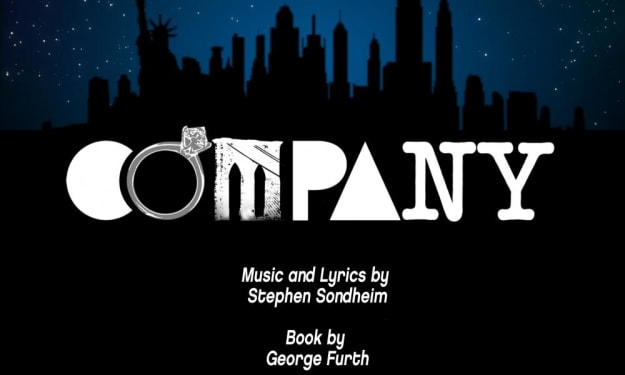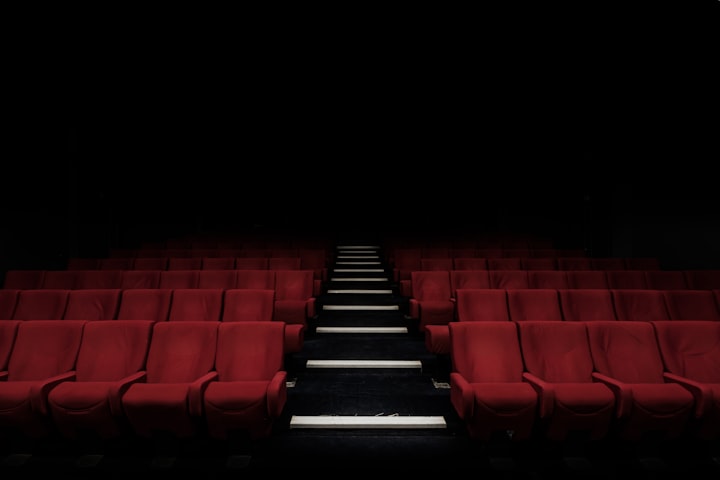
We are currently in an era where adaptations are a constant in conversations about musical theatre. Whether it is the returning trend of television adaptations of popular musicals, or general musings on the impact of new musicals being based on popular movies (I can't lie, I am super excited about Mean Girls), adaptations are a pretty big thing now.
Dreamgirls is a film that I remember being a huge fan of when I saw it in 2006, and I maintained my obsession with it by listening to as many different versions I could get my stagey little hands on. These all included the Original Broadway Cast recording from 1982, the Actors Fund Benefit concert version in 2001, as well as the 2006 movie. Now, here we already have three different versions of the same piece. However, I am going to focus on how the 2006 film compares to the current production in London that I have been fortunate enough to see.
First of all, the main difference between the film version and any on-stage version is that the on-stage versions have so much more music than the movie. The movie took full musical sequences and changed them into dialogue instead. Scenes like "Heavy" and "One Night Only" (to point out certain examples) in the movie only featured the title song as the sole pieces of music. However, the musical has them as full sequences, toying with the use of diegetics where the diegetic songs have lyrics that allude to the character's emotional state or individual narrative.
The stage production naturally embraces this a lot more than the movie, because the staging allows it. When characters on stage are performing a diegetic number in a theatre, they have a physical audience to play off of and bring the audience closer into the piece so non-diegetic songs and moments hit harder. "Jimmy's Rap" truly benefited from being in a live space because as an audience, we were living for it, so the narrative impact of Jimmy performing that number hit harder when we saw him lose everything because of it. The "Heavy" sequence was another example of this. Again, Effie White's behavior in the sequence in the stage production was hilarious (Karen Mav is comedic gold), and there was no denying her vocal ability, but the true, disruptive nature of her behaviour became apparent and hit harder because we had a more tangible audience connection with Effie White as a performer, due to the lack of a fourth wall.
The perception of the characters in the stage production compared to the movie is also an interesting point. First of all, Effie White in the film was nowhere near as funny as in the stage production. And this isn't a read on Jennifer Hudson at all. This is just an observation. Similarly, for Lorell Robinson (played to perfection by Asmeret Ghebermichael), Lorell was a continued source of comedy throughout the show, and she wasn't as funny in the movie. (Again, not a read on Anika Noni Rose. All will be clear soon.) Jimmy Early's comedy was a lot more apparent in the stage production, too (and was absolutely nailed by Adam J. Bernard), despite the movie allowing him to be the comedic core of the film.
The higher level of comedy, campiness, and audience interaction in the stage production compared to the film are all connected to the fact that the movie and the stage production seemed to have two different creative goals and intentions. The movie framed itself as somewhat of a musical biopic. It is no secret that Dreamgirls is based on the story of Diana Ross and The Supremes, and presenting the movie as a retelling of that story as opposed to presenting it more as a musical was not a bad creative move. The stage production hadn't been on in the UK in 2006, so selling it and presenting it as a musical would have made the film suffer in terms of viewing figures. However, because of this, seeing the stage production really made me personally appreciate the theatrical elements of the piece, because I was seeing them in a space where they would function a lot better. Effie's anger at Curtis and Deena almost being played for laughs in the stage version would have worked against the slightly grittier faux biopic (bi-faux-pic?) tone of the movie. However, it was perfect for the stage production. The same applies for a lot of the comedy in the stage production.
After leaving the Savoy Theatre, I was pumped full of adrenaline and in my excitement, proclaimed that it was way better than the film. However, upon further conversation, research, and thinking on my part, I feel that it is a disservice to both versions to dismiss one as better or worse than the other. As I have stated above, Dreamgirls on stage and Dreamgirls the movie, while being the same story, tell it in two very different ways, and both ways work very well given their individual mediums.
About the Creator
Jo' Ash
A British Musical Theatre Person™ who loves and writes about identity, the arts, and popular culture sometimes all at once!
Follow me!
Twitter @Joashaha
Instagram @Joashhh






Comments
There are no comments for this story
Be the first to respond and start the conversation.